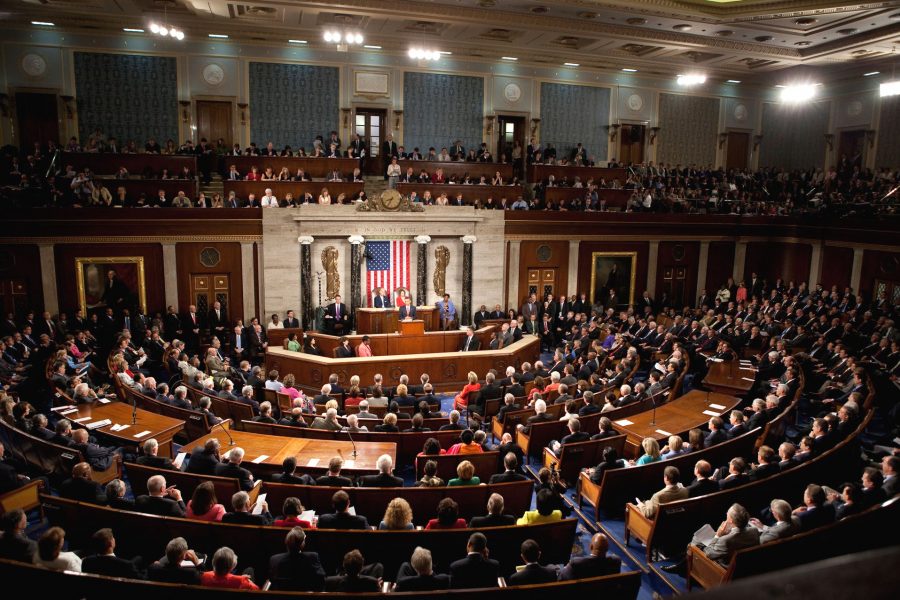By Mickey Masterson ’17, Perspectives Section Editor
It has been little more than two weeks since President Trump has taken office, and only 6 out of 693 officials have been confirmed by the Senate. These six include the less divisive nominees James Mattis for Secretary of Defense, John Kelly for Secretary of Homeland Security, Nikki Haley for UN Ambassador, Elaine Chao for Secretary of Transportation, and Mike Pompeo for CIA Director. Most recently, Rex Tillerson narrowly passed the Senate vote of 56-43, due to concerns over his connections to Russia. The confirmation process for Trump has been going significantly slower than for past presidents, with fierce opposition to his picks for key government positions.
While practically all of President Trump’s choices raise some red flags, some are clearly worse than others. For example, his choice of Kelly and Mattis, two generals, were nominated for positions not constitutionally intended for military officers, to ensure civilian control of the military, would have been somewhat disconcerting under any other president. However, they are undoubtedly experienced, capable leaders and thus were confirmed the day of Trump’s inauguration. Senate Democrats have picked the battles they are willing to fight, over whom they consider the worst of Trump’s nominees. The new Senate Minority Leader Chuck Schumer announced a list of eight Cabinet-level nominees that he would vigorously fight against, saying: “If Republicans think they can quickly jam through a whole slate of nominees without a fair hearing process, they’re sorely mistaken.”
Schumer’s list included:
• Rex TIllerson, State. (now sworn into office)
• Jeff Session, Attorney General.
• Rick Mulvaney, Office of Management and Budget
• Betsy DeVos, Education.
• Tom Price, Health and Human Services.
• Andrew Puzder, Labor.
• Steve Mnuchin, Treasury.
• Scott Pruitt, EPA.
One of the most common criticisms of Trump’s nominees by Democrats is that each appears to be the antithesis of the department they were picked to lead. Scott Pruitt, a harsh critic of the EPA, is notable for having filed 14 lawsuits against them. Rick Perry once vowed to abolish the Department of Energy during a 2012 Presidential debate; or at least he tried to say this, but embarrassingly forgot the name of the department he wanted to get rid of. Jeff Sessions has been accused of racial prejudice during his career as a US Attorney and Alabama Attorney General. Other concerns over Cabinet-nominees are their questionable connections to Wall Street. Trump’s selection of elitist business magnates such as Steve Mnuchin, a former Goldman Sachs executive, makes his campaign promises to “drain the swamp” and his pointed accusations at Hillary Clinton’s alleged corruptness now ring hollow. Trump’s Cabinet has a combined net worth of at least 6 billion dollars, more than any other Cabinet in US history.
However, what I find most distressing is some of his nominee’s lack of experience. I can live with nominees such as Tom Price for Secretary of Health and Human Services. Price is fiercely against extensive health-care such as with the Affordable Care Act. Though this may be upsetting to a significant number of people, repealing the ACA was a consistent part of the platform Trump ran on, and Price is an experienced Congressman. Take Ben Carson: while a talented neurosurgeon, he has no business running a huge federal agency like the Department of Housing and Urban Development. Had Trump nominated him for something like Secretary of Health and Human Services or Surgeon-General, it would have made more sense. But Carson has never had any experience with the services the HUD Department provides. He even initially stated he was reluctant to accept any sort of appointed position, citing his lack of government experience. And most of all, Betsy DeVos for Secretary of Education. She seems to have acquired that nomination due to her sizable donations to the Republican Party. In addition to never holding public office, she has been a critic of public education and had never attended, worked at, or sent her kids to a public school. By the time the Senate Committee voted on the advancement of her nomination, she clearly had not even done sufficient research about her potential new job. One need only watch her disastrous Senate hearing here: http://www.help.senate.gov/hearings/nomination-of-betsy-devos-to-serve-as-secretary-of-education to see how ill-prepared she was.
The Democratic Senators are prepared to fight as hard as they can against Trump’s nominees. Despite lacking the necessary majority and also lacking the ability to filibuster, there are numerous delaying tactics Democrats can utilize to make the confirmation process very difficult for Republicans. And I fully support their endeavors to do so. While I believe that Democrats in Congress should respect Trump’s authority as president and work with Republicans on common ground like a job-creating expansion of infrastructure, at certain points they shouldn’t compromise their values. Even if I do not share all of their political views, I understand that Democrats feel that their core beliefs of what is right and wrong are being threatened by the Trump administration. They will do whatever it takes to defend their notion of an egalitarian democratic society.
Anytime one political party gains a significant majority in the government, it is scary, let alone with an abnormal President like Trump. The Founding Fathers designed our government to be inefficient and not give way to one particular ideology or other. The fact that the Republicans have control of the White House, both Houses of Congress, and a potential 7-2 Supreme Court majority in the next 8 years is troubling. Yet, our Constitution has plenty of safeguards against excessive power. Considering the Republican majority in the Senate is a narrow four person margin, it appears that the Senate, intended as a house of civility and collegiality, will be a major battleground for resistance against the Trump administration at least until the midterm elections, if not longer. It is not only fair for the Democrats to resist Trump because it is a fitting role-reversal of the Republicans resistance to Obama, but also because it ensures the continuance of a true democratic process. At the time this article is being written, Betsy DeVos is the next nominee the Senate will vote on, and is projected to be the tightest vote, with 2 Republicans declaring against DeVos. It is entirely possible the Democrats under Schumer will block this nomination.
These next four years will undoubtedly be a trying time for the Democratic Party. Whether they emerge stronger from this crucible, or crumble, only time will tell.






